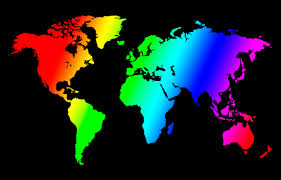
WTTC finally takes a stand on LGBT travel and tourism – or not
It’s official. The World Travel & Tourism Council (WTTC) released a statement on where it stands on global LGBT tourism – sort of.
WTTC CEO David Scowsill recently was a speaker at the IGLTA annual summit in Cape Town, but many participants were disappointed.
The audience was waiting to hear about how WTTC and the UN World Tourism Organization (UNWTO) can help to stop open discrimination and fear from its members of the LGBT community to participate and enjoy global travel and tourism activities. Unfortunately, this was not addressed by Mr. Scowsill.
Of course it’s important for the leader of a private global travel and tourism organization to either say we support LGBT tourism or we don’t. As WTTC told eTurboNews in a statement today, “The World Travel & Tourism Council was founded by leading private companies in the sector to raise awareness of the enormous economic and social benefits that travel and tourism brings to the entire world community.”
WTTC’s statement continued: “For the positive effects of these benefits to be felt, it is important that people are able to travel wherever and whenever they wish. The LGBT leisure travel market is significant and growing. Destinations which have actively promoted to and welcomed this segment, are reaping the rewards economically, socially, and culturally.”
Again, WTTC is short in saying we support LGBT tourism. The statement dances around the issue and observes that those that do support it, may prosper economically.
So where does WTTC stand on this issue? Is this going to remain a non-issue at upcoming WTTC summits and discussions?
It’s obviously very different when it comes to a stand on empowering women. This subject was a top item on the agenda at WTTC summits and events, but LGBT and equality for gay, lesbian, bisexual, and transgender travelers has so far never been seriously discussed.
The same is true for UNWTO. eTN will continue to push for both organizations to make a clear stand one way or the other. Many UNWTO member countries and many WTTC companies based in certain member countries where homosexual activities are crimes may be the cause for WTTC’s hesitation to take this important stand. One has to follow where the money comes from to maintain the two organizations.
It could very well be the reason WTTC and UNWTO are forced to maintain a “neutral” stand, but can neutrality justify allowing the criminalization of LGBT travelers and open discrimination? How can the travel and tourism industry take the WTTC and UNWTO leadership serious, if 10 percent of the world’s travelers are being overlooked?
